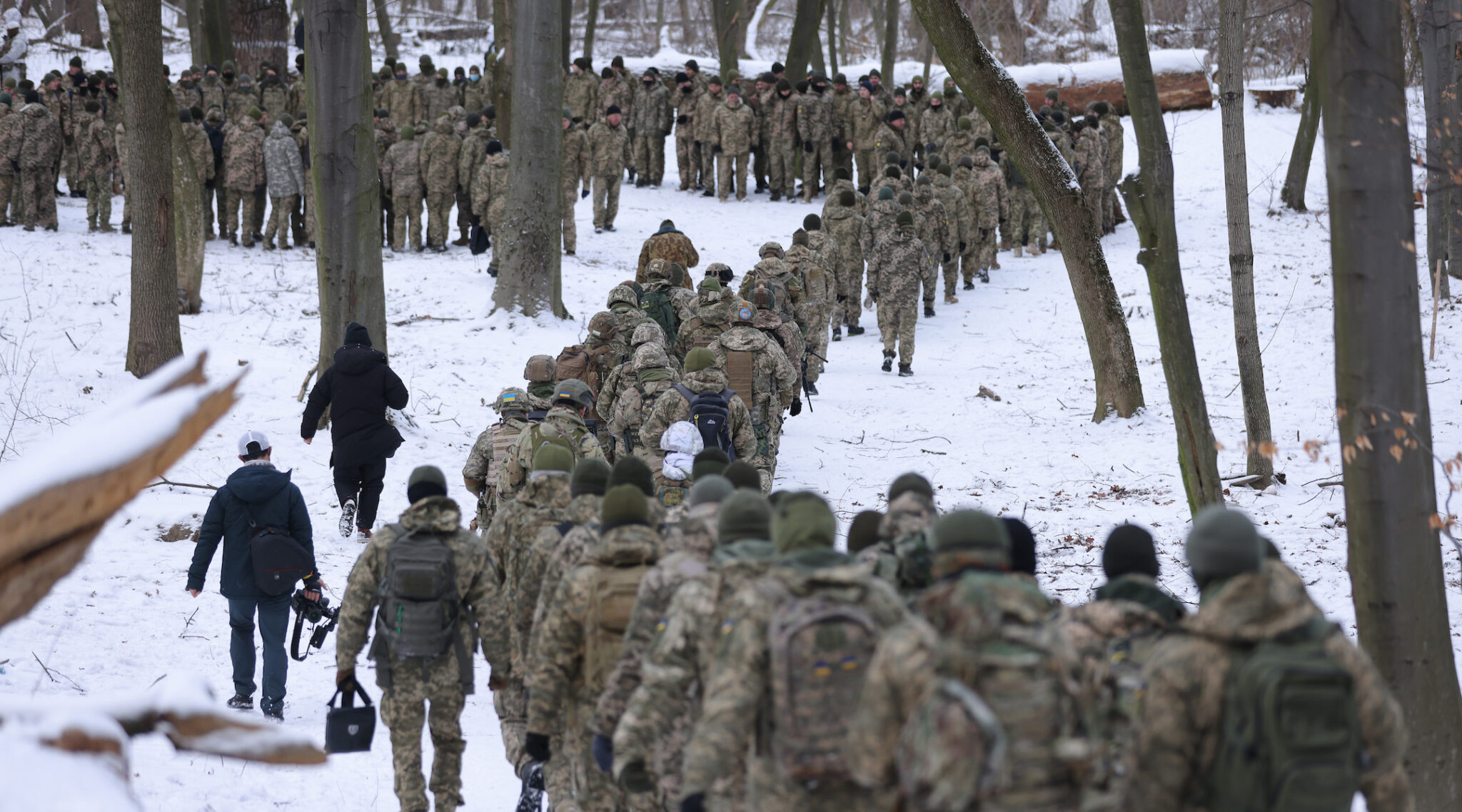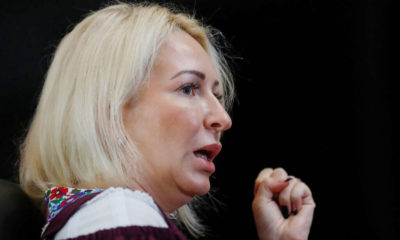
World

To war or not to war – what is the impact?
Russian peacekeeping troops have been dispatched in eastern Ukraine while more than 100 North Atlantic Treaty Organisation (NATO) aircraft are on high alert and 120 allied ships are at sea.
Sanctions have been slapped on hundreds of Russian legislators, and Russian access to European capital markets has been severely limited. It follows Russian President Vladimir Putin’s recognition of the independence of the Ukraine’s two separatists republics of Lugansk and Donetsk. NATO Secretary-General Jens Stoltenberg declared, “This is the most dangerous moment for European security in a generation.”
It’s also a telling moment for Jerusalem. Who does she side with? Washington, her most important ally? Or Moscow, whom she needs to counter crucial threats in Syria? Jerusalem isn’t a player in the Russia-Ukraine dispute, but she has a lot to lose. Sanctions against Russia could harm her own security interests, while her close ties with the United States (US) could jeopardise her co-ordination with Moscow and her operations in Syria. For Jerusalem, this co-ordination is especially crucial to prevent Iran and its proxies from embedding themselves in Syria.
There are Jewish communities in both countries. According to the World Population Review website, about 48 000 Jews live in Ukraine, representing about 0.1% of the country’s total population. The country’s “enlarged” Jewish population, which includes individuals “with partial Jewish heritage” who may also be eligible for Israeli citizenship, totals about 140 000. Israel is on standby should Ukrainian Jews emigrate en masse, although so far only a few dozen have done so. As for the roughly 10 000 Israeli citizens in Ukraine, all have been told to leave. Just less than half have done so.
At the time of writing the world is holding its breath: will there, or will there not, be war? Caught between a rock and a hard place, Jerusalem wants to adopt a middle path. But sometimes being a friend to everyone can translate into being a friend to no-one.
Since the last Russia-Ukraine war six years ago and subsequent skirmishes, more than 14 000 people have lost their lives. I spent months reporting from eastern Ukraine, an area Putin calls “ancient Russian land” where the local population speaks and identifies as ethnic Russian. There, while embedded with pro-Russian fighters, I came across a former Israeli soldier in his early twenties who had returned to eastern Ukraine to fight against the Kiev military. “I am Israeli and Russian. I grew up here,” he claimed while embracing his comrades. “I cannot sit by and do nothing in Bat Yam [an Israeli city] while the fascist Ukrainian government refuses to acknowledge the rights and wishes of my friends and family living here.” He kissed his Israeli ID and Magen David necklace.
The Ukrainian aliya was the largest from the former Soviet Union after the breakup of the Cold War. According to the Israeli ministry of foreign affairs, about 600 000 expats from Ukraine and about 450 000 to 500 000 expats from Russia came to live in Israel. Their response to the conflict has been very emotional. Over the years, I’ve met several Ukrainian Israelis who returned, albeit temporarily, to fight alongside the Ukrainian military.
As Ukraine teeters on the brink of civil war, a smaller version of the conflict plays out in Israel. A handful of solidarity and protest demonstrations have taken place outside the Russian and Ukrainian embassies. Although many activists have spent more than half their lives away from their countries of birth, it doesn’t make them feel any less involved. The real conflict, however, is in the Russian-language press and on social media, particularly Facebook. During the last conflict, I received several death threats from Israeli Ukrainians who criticised my reporting for the pro-Kremlin news channel, RT, that I work for.
The divide isn’t just between Israeli Russians and Ukrainians, but the latter are just as divided among themselves. Those from eastern Ukraine, where ethnic Russians are dominant, most often side with the pro-Russians; those from the west are more sympathetic to the Ukrainian nationalists. Amongst the Russian-speaking Israelis, those who are more right wing tend to admire Putin and often express the view that he would be “good” for the Arab-Israeli conflict. “Give him one month,” I’ve been told numerous times, “and he will sort out the mess here in Israel!”
Think what you want about Putin, he knows his history. “How is this different from Kosovo?” he asked in a major speech on Monday, 21 February. Much to Russia and Serbia’s chagrin at the time, the international community – notably those countries now protesting Moscow’s recognition of the two breakaway Ukrainian republics – loudly recognised Kosovo’s self-declaration of independence from Serbia in 2008. The same parallel can be made with Palestine. On 31 July 2019, 138 out of 193 member states of the United Nations recognised the state of Palestine. Though only a third of European Union member states are in that group and the US isn’t, there’s a strong argument against countries behaving inconsistently and with double standards.
Should the Ukraine crisis escalate into a diplomatic and economic clash between Washington and Moscow, Israel would back the US, according to several senior Israeli officials who spoke publicly this week. Still, the Ukrainian capital, Kiev, expressed disappointment that Jerusalem hadn’t stepped up its diplomatic and moral support. The Ukrainian foreign ministry summoned Israel’s ambassador to Kiev to demand an explanation for media reports that Jerusalem had requested Moscow’s assistance in evacuating its citizens from Ukraine in case of war. The move was interpreted as relaying a message that while Kiev understands Israeli interests and its need not to anger Russia, Jerusalem mustn’t rely on Ukraine’s automatic support.
Israeli Foreign Minister Yair Lapid summed it up best when he said that Israel was “in a bit of a Baltic situation … We have a kind of border with Russia … We are being careful, and we need to be careful.”










